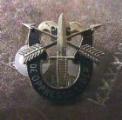In my own work on Insurgency I have come over time to the postion that Insurgency is much more accurately a condition rooted in the perceptions of a populace towards its governance than it is any specific family of actions or organizations. How those conditions manifest is a choice made by the rebelling segments of the populace; but the causation itself is rooted in the governance. This is why one may well have several pockets of subversion and insurgency with unique views on ideology, tactics, goals, etc all orbiting about one hub of "poor governance"
The goal of this thread is to look at the relative merits of Violent vs. Non-Violent approaches on the part of the insurgent.
There is a body of work that makes a strong case for the smart insurgent (who I hope are reading this thread) to abandon violent approaches and to embrace non-violent apporaches instead. Not just because we seek greater stability and security for the populaces that are affected by the condition of insurgency, but because the U.S. stands very much for the principle of "good governance."
Governments rarely change of their own accord, and often it is necessary for the populace to force change upon their government. While current "war-based" COIN is rooted in preserving the current government and convincing the populace to stand down; suggested here is that it may well be far more effective to instead focus on encouraging those same popualces to take non-violent approaches, while at the same time encouraging those poor governances to listen to their people and evolve.
I will post a variety of products to support this premise. This is a debate that needs to take place. We have been trapped by our doctrine and definitions into narrow lanes that tend to cast violence as warfare, and all populace violence as insurgency. I hope to explore new, and more effective ways to characterize these activities as a part of this thread as well.












Bookmarks